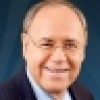My 100-year-old Jewish father, a World War II veteran, recently asked me a question with concern: “Where is all this antisemitism coming from?”
His question was spurred by the horrific increase in antisemitism since Hamas' Oct. 7 attack on Israel. The Anti-Defamation League has recorded more than 2,000 antisemitic acts in the United States − an increase of 337% − in the two months since Hamas terrorists slaughtered 1,200 men, women and children.
"The lid to the sewers is off, and Jewish communities all across the country are being inundated with hate," Jonathan Greenblatt, CEO of the ADL, has said.
Yet, the deeper answer to my father's question is that the history of antisemitism in the United States is long and sordid.
After World War I, universities imposed quotas on how many Jewish students they would admit. Certain neighborhoods, hotels and clubs excluded Jews. Auto magnate Henry Ford promoted antisemitic propaganda, stating that Jews sought to control the world’s economy, beliefs that Adolf Hitler praised in his infamous "Mein Kampf."
In the late 1930s, antisemitism and pro-Nazi sentiment were rampant and growing. In fact, when my father was graduating from the renowned Brooklyn Technical High School in New York, he sacrificed his final grade and valedictorian status by standing up for a fellow Jewish student who was being picked on by an antisemitic teacher.
Julianna Margulies:My non-Jewish friends, your silence on antisemitism is loud
In 1939, on the precipice of World War II, famed national radio announcer Walter Winchell condemned a rally of 20,000 Nazi sympathizers at Madison Square Garden in New York City. He also criticized Charles Lindbergh, an American hero and international celebrity who became an apologist for the Nazis.
Lindbergh's bigotry inspired my teacher and mentor Philip Roth to write a great novel, "The Plot Against America," exploring how U.S. history might have unfolded had Lindbergh's dangerous views prevailed.
Yet, World War II galvanized Americans against a common enemy in a way we can certainly learn from now. Our military were liberators, freeing Europe from the oppressive evil that would cast others as subhuman to justify genocide.
The massive patriotism of that generation and societal sacrifice triumphed over all naysayers and Nazi sympathizers, including Lindbergh and his America First Committee. Most Americans celebrated the role they played together in freeing the world, and antisemitism was at a low.
When my father says antisemitism appears to be far greater now in the United States than during World War II, he is right. During the war, 550,000 Jews, including my dad, served in the U.S. military, and the country came together in a singular fight against the Nazis.
This positive sentiment carried over into the golden era of post-war America. When I was growing up in the 1960s and '70s, I felt little antisemitism, but then it began to creep slowly back, fueled by hate groups.
Where will the wave of hate go next?The rising hate in America now is alarming.
The antisemitism story of 2023 isn’t about freedom of speech or academic freedom.
It's about meanness and divisiveness, flames fanned by the cruelty of social media, where it is too easy to hide anonymously behind cruel expression.
I recently interviewed former President George W. Bush on his ranch in Crawford, Texas, where he gave sage advice for our country. History goes in cycles, he said, and we are in the midst of a dark time, a down cycle, but we will come back up to the light.
In the meantime, he said, “We need hugging instead of yelling.”
I couldn’t agree more. Jews are sensitive to the word "genocide," considering that the Holocaust occurred only 80 years ago. But the rest of the world needs to be sensitive to it, too.
The issues have not been this clear or sharply focused since perhaps World War II.
Israel has a right to defend its borders. Hamas is monstrous and engages in tactics reminiscent of the Nazis. They need to be eradicated if Israel is ever to feel secure.
At the same time, the humanitarian crisis in Gaza also is disturbing and deserving of the world’s attention. Efforts to provide medical and humanitarian relief for Palestinians are crucial.
President Bush is right. Hugging may have been a problem a few years ago for fear of spreading infection, but it is certainly the right medicine for all of us now.
Dr. Marc Siegel, a member of USA TODAY's Board of Contributors, is a professor of medicine and medical director of Doctor Radio at New York University's Langone Health. His latest book is "COVID: the Politics of Fear and the Power of Science." Follow him on Twitter: @DrMarcSiegel





















 Toi Staff
Toi Staff Gideon Levy
Gideon Levy Belen Fernandez
Belen Fernandez Mort Laitner
Mort Laitner Rami G Khouri
Rami G Khouri Ali Fathollah-Nejad
Ali Fathollah-Nejad Nikkei Editorial
Nikkei Editorial
